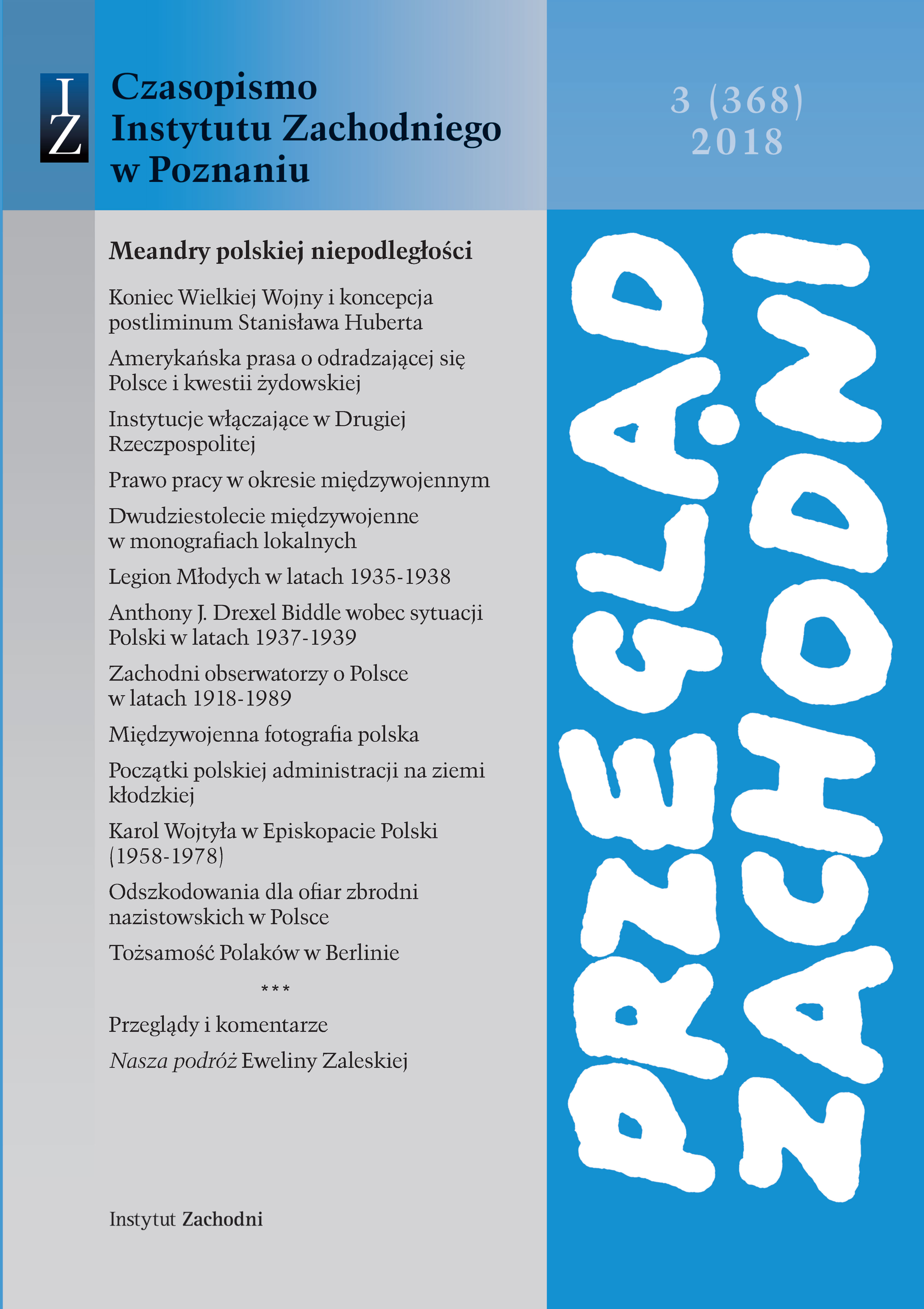Zwrot w stosunkach polsko-niemieckich 1989-1991 a odszkodowania dla ofiar zbrodni nazistowskich zamieszkałych w Polsce (porozumienie z 16 października 1991 r.)
The turn in Polish-German relations in 1989-1991 and the compensations to the victims of Nazi crimes resident in Poland (agreement of 16 October 1991)
Author(s): Jan BarczSubject(s): International Law, Human Rights and Humanitarian Law
Published by: Instytut Zachodni im. Zygmunta Wojciechowskiego
Keywords: Germany; Poland; negotiations; compensations to victims; agreement of 16 October 1991
Summary/Abstract: The aim of the article is to analyze the proceedings of negotiations concerning compensations to be paid by Germany to the Polish victims of Nazi crimes. These negotiations ultimately led to the adoption of the agreement of 16 October 1991, which opened the way for providing help to those victims who live in Poland. This is a relatively scantily studied area of the entire packet of regulations (Treaty on the Confirmation of the Frontier, the so-called “Big” Treaty, the Two-Plus-Four Agreement) which opened a new chapter in Polish-German relations. The article for the most part refers to documents published for the first time. The negotiations that led to the agreement of 16 October 1991 took more than two years to conclude and were extremely complex. Their outcome was the so-called pragmatic solution and within its scope – regardless of discrepancies in legal attitudes (which formerly blocked the payment of compensations by the FRG) – the way was opened for providing concrete help to those victims of Nazi crimes who live in Poland.
Journal: Przegląd Zachodni
- Issue Year: 368/2018
- Issue No: 03
- Page Range: 233-258
- Page Count: 26
- Language: English, Polish

